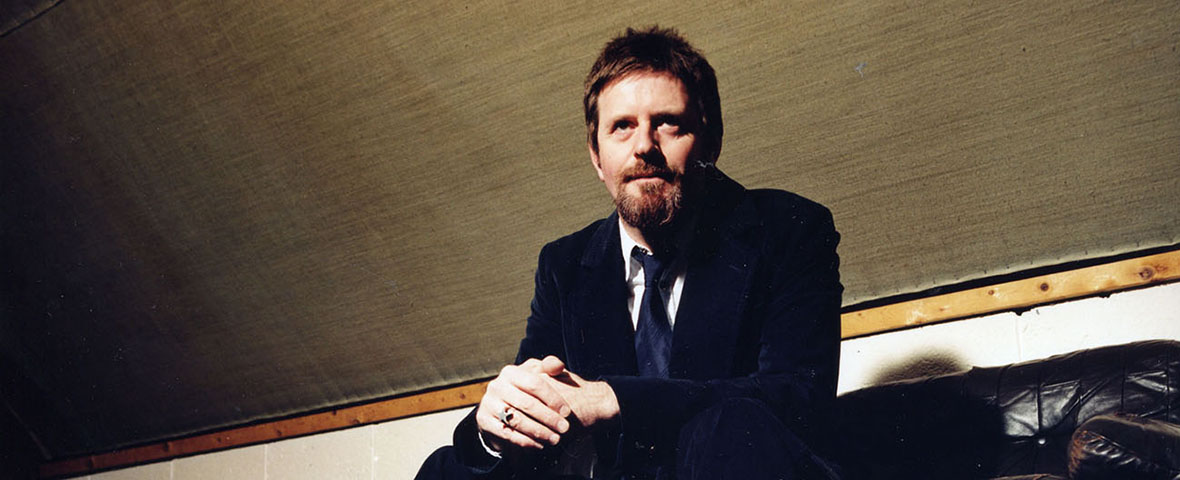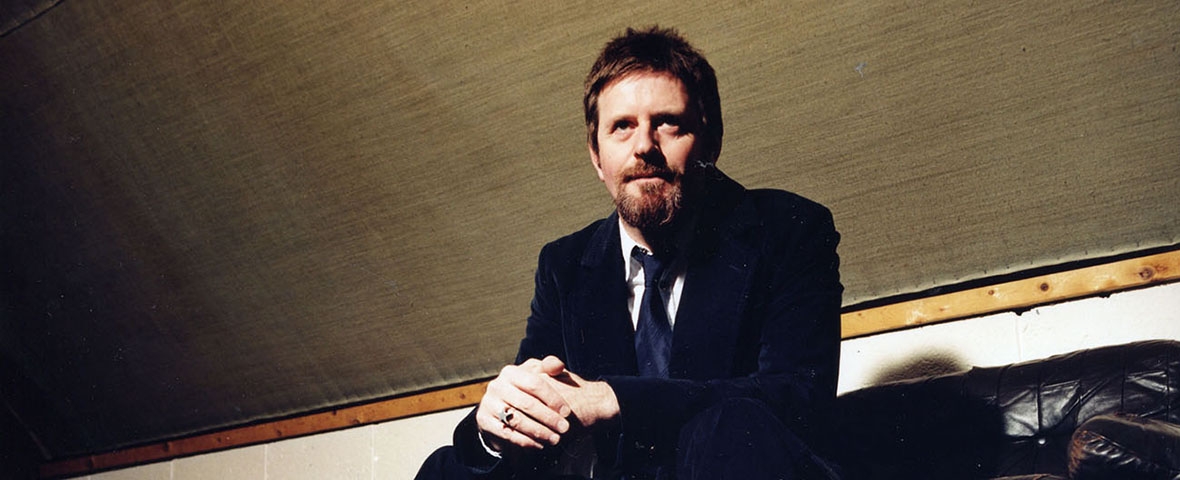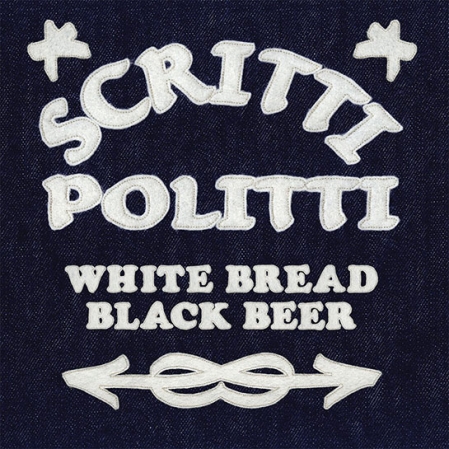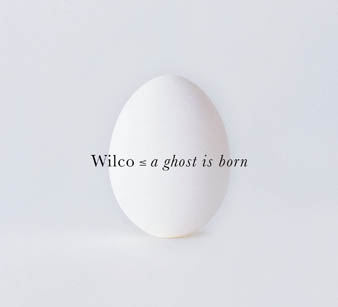In 2006, Green Gartside (aka Scritti Politi) returned, having been away, once again, for some time, with White Bread Black Beer, his first album in seven years. His story begins watching the Sex Pistols in Leeds in 1977; continues for a period in early '80s Camden squat land, where attempts at a pop commune produced Peel-loved, post-punk singles; made a daring break into pop with the deathless “The ‘Sweetest’ Girl”; moved to New York to become a full-fledged MTV star and sonic inspiration to future R&B; almost went mad from the effort; retreated to Wales and returned making hip-hop; and in 2006, at 50, recorded White Bread Black Beer.
In 2006, Green Gartside returned, having been away, once again, for some time. Back with his first album in seven years, back on Rough Trade after 24 (Nonesuch / Rough Trade in North America), back on stage after 26. The man who is Scritti Politti has always been inclined to absence more than presence, questions more than answers, contradictions he spends years happily lost in. His is a story, after all, that begins watching the Sex Pistols in Leeds in 1977; continues for a period in early '80s Camden squat land, where attempts at a pop commune produced Peel-loved, post-punk singles; made a daring break into pop with the deathless “The ‘Sweetest’ Girl”; moved to New York to become a full-fledged MTV star and sonic inspiration to future R&B; almost went mad from the effort; retreated to Wales and returned making hip-hop; and in 2006, at 50, produced another intricate, self-questioning pop master class, White Bread Black Beer, recorded alone, in his Hackney back room.
So the question arises, as it does after every Scritti album’s long gestation: what on earth was Gartside up to? “Indolence,” he considers. “Sloth. Indulgence. Lots of anxiety. Bit of boredom. Lots of hanging out in Hackney. Some recordings in New York. The odd trip to LA. And writing, the whole time. And very slowly getting my arse into gear, to make something again. I must have dozens of songs that I’ve started, and partly recorded. Then I get bored with the business of finishing them—or frightened, might be nearer the truth. If no one yellsat me, then I just enjoy myself. I work on a song one afternoon a week. And then get the train and go somewhere. Bum around. A fantastic, very enjoyable, lazy way to live a life. And I’ve been able to get away with it! Nothing more profound than that.”
Things were far less relaxed in Gartside’s formative years. Growing up in Wales, a move to Leeds Polytechnic to study art coincided with the Sex Pistols’ Anarchy tour passing through town in 1977—all the inspiration he needed to become a musician. But, swiftly disappointed with punk’s original impetus, and fueled by Marxist theorists like Gramsci, Gartside’s approach to making pop involved pulling it apart, to see what made it tick. Living in a Camden squat immortalized on the sleeve of Scritti Politti’s second Rough Trade EP, 4 A Sides (1979), the original group was a loose collective, many not even musicians, who ate speed and little else, and agonized over every action. Scritti’s first EP, Skank Bloc Bologna (1978), even deconstructed its own making, listing its manufacturing sources and costs, a model for then-burgeoning DIY pop. The sound was lo-fi funk-reggae; its lyrics rigorously critiqued language and life. At gigs, Gartside improvised songs on the spot. They were post-punk darlings of John Peel and the music press, but at a huge psychic cost to Gartside. In the aftermath of a gig supporting Gang of Four in Brighton in early 1980, he was hospitalized with a panic attack so fierce he thought he was dying. He would not play live again till 2006.
Recuperating in rural Wales, Scritti’s first radical reinvention was hatched. Gartside was reading post-modern French theorist Jacques Derrida now, and listening to Michael Jackson’s Off the Wall. Suddenly, the nascent indie nation’s marginalized disgust at the mainstream, which Scritti had been figureheads of, seemed passé. “The ‘Sweetest’ Girl,” announced with a hiss of drums and loping piano from Robert Wyatt, and with Gartside shedding his previous, frail, Wyatt-inspired voice for a sweet soul falsetto, still interrogated pop—those quotes round “Sweetest”—but was now also an almost perfect example of it.
But though the subsequent album, Songs to Remember (1982), reached number 12, Rough Trade didn’t then have the financial firepower for Gartside’s grand new vision of pop subversion. Shedding Scritti’s other members, in 1983 he joined Virgin and moved to New York. With crack local musicians Fred Maher and David Gamson (and brief help from legendary Atlantic soul producer Arif Mardin), Gartside wrestled with R&B’s just-dawning sonic possibilities, and the meaning or otherwise of soul. “Wood Beez (Pray Like Aretha Franklin)” was an early single from this project, and Scritti’s first UK Top Ten hit. “Perfect Way” would reach number 11 in the US and be covered by an admiring Miles Davis. The eventual album, Cupid & Psyche 85 (1985, released by Warner Bros. in the US) was a glistening masterpiece of '80s pop, using just-invented sequencers to sculpt an intricate sonic surface and skittering rhythms, while retaining organic warmth from Gartside’s honeyed voice and melodies, on love songs that quietly questioned themselves. Add Gartside’s blond good looks, and the squat land refusnik was soon an MTV star, and a hit on black and white radio. Inspired by Quincy Jones, Scritti’s innovations then can be traced through Jam and Lewis to Timbaland and beyond, one of the few white influences on black pop since the '60s. But again, the strain shattered him.
“I was playing around with the whole business of making pop,” Gartside considers, “investigating being a pop star. But I wanted to get away from it as soon as it happened! It had its interesting moments, and threw up some times, in New York and going round the world, that I wish I could remember. But I was in such a state of high anxiety that it would be either one chemical or one beer or one whatever to keep me on the road. It was 30% fascinating, 20% tiresome and embarrassing. And 50% just really uncomfortable.”
Did his success freeze him—with indecision and fear? “I guess it did. It certainly culminated in me wanting not to do it any more. It was completely the wrong ‘line of work’ for me ever to have begun, as it didn’t suit my character or temperament or delicate sensibility to be … on children’s television, or whatever it was. It’s a very soul-destroying and undignified business, becoming a pop musician, unless you really want it. And why anyone should want it is a mystery to me. But I’m playing down how interesting it was, starting out on Rough Trade and going on to do what I did. That neglects the whole musical experimental side of it. That sound was very much a group creation, along with David Gamson and Fred Maher. You could hear it being echoed, on what they used to call urban stations, that would play R&B, a little bit of hip-hop, a certain end of white English pop. I’ve met people since who said it was influential on them. But I don’t often think or care about that.”
There had been three years between Songs to Remember and Cupid & Psyche. The gaps from now on would be longer still, as Gartside seemed to slowly turn his back on stardom and recover his soul. “It was just a progressive discomfort,” he says. “Provision (1988, also on Warner Bros. in the US) was an uncomfortable and tortuously long album to make, and somewhere along the way, the pleasure had started to go out of doing it. And although I’ve never listened to that record since it was finished, I would imagine that you could hear that in it. For a lot of making it, I’d left Manhattan, and I was living in a hotel in White Plains for a very long time, going slightly barmy. Then the deal was, because I wouldn’t play live, I would go round the world and do just about as many press interviews, radio interviews, TV mimings, Good Morning Cincinnati chat show things … It was … Christ, awful. It took its toll. There was a mess, and I’d had enough.”
Another spell of Welsh self-exile followed, this one leaving 11 years between albums. It was nearly permanent. “In the gap between Provision and Anomie & Bonhomie, I’d given up, pretty much,” Gartside, recalls. “I still made music, wrote songs, for my own entertainment. But I mainly just listened to stuff, lived the reclusive life. I had decided the whole business of making music and performing and the rest of it was too painful.” He catches himself. “I tell you the bad thing about this. When you’ve lived a basically charmed life, and been lucky enough to be bone idle, to be whining about how you can’t bear the pain of having to be on American TV sounds, and is, incredibly self-indulgent. So I shouldn’t play up how dreadful it was.”
Anomie & Bonhomie’s uneasy mix of soul, blissful pop, and pure hip-hop (including a guest-slot for the then-underground Mos Def) followed 1991’s Beatles-covering Shabba Ranks duet “She’s a Woman” as a step into the unlikely unknown too far for all but Scritti’s hardcore fans. It flummoxed Virgin, and Gartside left them. But, thanks to a chance offer from his sister to take over her Hackney flat in 1997, the psychic battering of his brief time in the pop front-line was slowly starting to heal.
“With the passing of time, a lot of fears and negative thoughts start to recede,” he explains. “A more embracing, energetic, eager life returns. A lot of that had to do with coming back to London, after years on my own in Wales, and meeting neighborly people in Hackney. It was the first time I’d felt part of a community for a long time. There has to be a little bit more to life than getting pissed and playing darts and walking down country lanes. Although, being the kind of person that I am, a lot of it’s still centered around Hackney’s pubs.”
Gartside’s return to live performance in 2006, in semi-secret, low-key gigs, was perhaps the most startling sign of his return to health. Many of his live band-mates have never played professionally before; all were casual acquaintances at his Hackney local. It marked a return to Scritti’s amateur, communal roots. “With certain anxieties receding,” Gartside explains, “I felt more comfortable even talking to people in the local pub, and saying, when it came up that someone played guitar, ‘Do you wanna come back to my house and play?’ which is something I hadn’t done since the very beginning. It would’ve beenpossible when the idea of playing live was mooted to have rung up a number of very accomplished Americans. But I would’ve hated that. The first time back on stage, I felt a mixture of anxiety and elation at having managed to get there. Sharing in a group’s enthusiasm, some of whom haven’t even played their instruments before—it’s like all the good parts of the old days.”
There’s continuity, too, in the album; Gartside is now back on Rough Trade. White Bread Black Beer is more beautiful, ambitious—subverted pop, mixing summery Beatlesque and folk touches with feather-light soul and hip-hop traces.“I’d basically given up everything to listen to hip-hop, for years and years,” he says of the sounds in his head in his time away. “After that, I also listened to a lot of what everyone’s been going back to—Kraftwerk, Beach Boys, lover’s reggae, rockabilly, Wanda Jackson. Weird stuff that crops up in the house, or on iTunes. Or Sufjan Stevens, which completely blew my mind. I recorded the album on my own, in a tiny room at the back of the house. I was happy, in spite of my limited musicianship and the technical limits of working at home, to do it all myself, to forego certain expertise, polish and dynamics that I could’ve got people together to provide. For the first time, I felt just about confident enough to sacrifice that.”
The lyrics, some of Gartside’s best, again interrogate their own subjects, if with a warm emotional directness that’s been quietly growing in his work for a while. “It’s not a technique that’s consciously applied,” Gartside considers. “But this rapid shift of focus from the very personal domestic and emotional to broader concerns and comparisons, ideas of utopian socialism compared and mixed with stuff about falling in love, is … the same old shit!” he laughs. The music, meanwhile, switches genres in mid-tune, while still impersonating perfect pop. “Switching styles is the kind of thing that, if I was listening to that kind of song by somebody else, I would wish that they would do. If you’re listening to a ballad, you think, what if this was switched into a drum machine groove that had a whole different set of feelings to it? Things that go straight ahead bore me. The barriers between different kinds of music seem a bit artificial to me. Having an intellectual underpinning to how songs are put together is just something that you learn to accept, and expect, of yourself. It’s become natural, for want of a better word. It keeps me amused.”
As to the songs’ subjects, Gartside still feels too close to them to know. Comment on what sounds like a pervasive fear of intimacy, or the noir convolutions of the epic, astonishing “Dr. Abernathy,” and he offers only clues. “One could sit down and pick that song apart almost line by line, image by image, and I would be able to provide an account of it,” he admits. “I see quite vividly when ‘Daddy had a rabbit skin to wrap his baby in’ fathers crop up quite a lot in the lyrics. I very vividly see the part of the New Jersey shoreline where this unfortunate infant is dispatched to her death. That one’s got so much going on it. I’ve always hated what they call confessional lyric writing. But if there was a better word than confessional, I’d be happy to admit that some of that has come into my writing. I guess references to certain pleasures and problems are woven throughout the whole record.”
One personal circumstance that changed soon after he finished the record was Gartside’s marriage. “It’s an interesting relationship with an interesting history,” he says, “which has fortunately kept improving, to the point where it felt really nice to get married. So, it’s all good, as they say in Hackney.”
“I was born disinclined,” Gartside sang on Anomie & Bonhomie, a spirit of refusal and resistance that seems to sum up his musical life. But now, is contentment creeping up on him, too?
“I wonder if I should be alarmed by that,” he considers. “There is a radical scepticism that remains. But perhaps less misanthropy.”
Your own happiness is hard to ignore?
“Yeah. Things are better.”
—Nick Hasted







